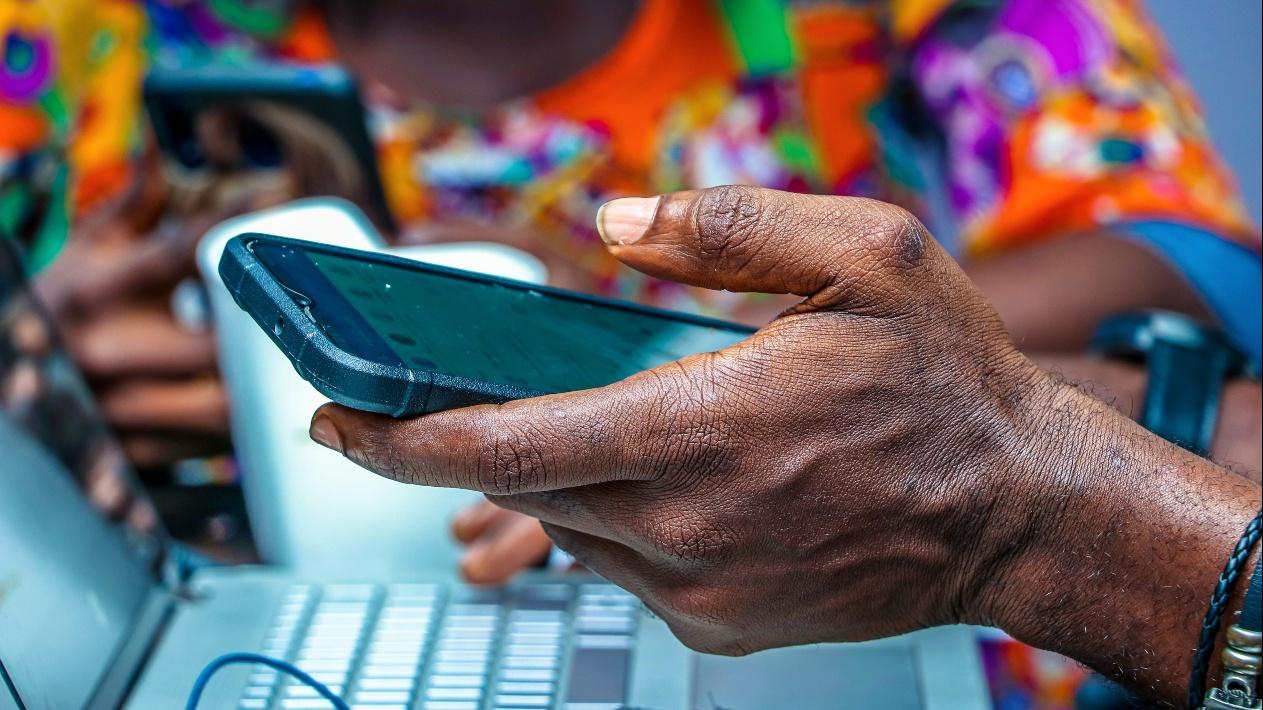Mandarin is increasingly featured on African school curriculums and Chinese translators on the continent are in ever-rising demand. But whether the language thrives in Africa in the long-term, writes Ifeanyi Eke, depends on the form of deepening China-Africa economic and cultural connectedness.
This article is part of the China-Africa Initiative series, exploring the deepening economic interconnectedness of Africa and China.
A recent move by the Tanzanian government to include mandarin in the national college entrance examination for students, in selected high schools, shows once again how integral the Chinese language is becoming to African societies. Similar moves have been seen in Kenya, where there has been a drive to have Mandarin officially taught in all schools alongside French, Arabic and German – languages already on the curriculum. Likewise in South Africa, Chinese has been an optional language course for students since 2014, and in 2018 Uganda introduced Mandarin to selected secondary schools. Nigeria is not behind the trend; thousands of students have been trained in the Chinese language from the two Confucius Institutes established in the country.
While a remarkable, transnational spread of Mandarin throughout the region, the extent of the language’s continued growth is conditional on a range of broader economic policy decisions beyond education.
What’s driving Mandarin’s rapid growth in Africa?
By 2018, Confucius Institutes and classrooms in Africa had grown to approximately 70 since the continent’s first was established in Kenya in 2005. Motivation for this rise, however, is not simply spurred by the desire to build classrooms but the willingness of students to embrace the language backed with government support, and a recognition of the benefits to being bi- or multi-lingual. Getting a scholarship to study in China, entering into international trade and China’s growing presence in African manufacturing, construction and other economic sectors are all motivating factors. Indeed, speaking a Chinese language is often regarded as a key to unlocking opportunities in a continent seeking industrial growth and innovation – to gain more relevance in the world economy.
Chinese business activity plays a significant part in Mandarin’s rising demand. For instance, of the 40-plus free trade zones in Nigeria, a majority of the companies working within them are Chinese-owned; a 2019 Financial Times report estimated that about 920 Chinese companies were operating in Nigeria, driving demand for Chinese translators. Indeed, a Chinese language translator in the country earns on average five times the minimum wage. A 2021 World Population Review record shows that four of the seven top countries with the largest Chinese communities and Mandarin speakers are African (South Africa, Nigeria, Mauritius and Madagascar), reinforcing demand for what is considered a growing and therefore lucrative skill.
Mandarin as a global language
These trends encourage the narrative that Africa is a catalyst for Mandarin becoming a global language – one matching up to English in the future. But what does it mean for a language to be considered ‘global’? Accounts range from the ability of a language to achieve an ‘official’ position and national education preference to simply a convenient and widely used means of communication; these views both see language usage as important not only in education but in arts, diplomacy, business and spheres linked to economic and political power.
Mandarin has not yet achieved such a diverse status, and a relatively larger proportion of Africans still seek education in the West, making English-based exams a top priority. To challenge this dominance, of British and French institutions in particular, China would need to continue to raise the excellence of its universities to attract more African students.
How African countries support Mandarin in their educational curriculum also plays a role. African governments who have introduced Mandarin into their curriculum highlight economic and trade relationships as a major reason, which reinforces a view that Mandarin’s relevance is based on achieving economic goals alone. To achieve global language status, the desire may need to go further; African governments would have to go beyond establishing language learning classrooms and promote institutional cooperation schemes between their countries, most importantly in areas of research and development, technological innovation and science. Combined with Mandarin-language classrooms, barriers to collaboration in more domains will need to be removed.
The growth of Mandarin shows no sign of slowing down in Africa, but whether it will thrive in the long-term depends on the nature and extent of the century’s globalisation and Africa’s place within it – whichever direction will be worth watching out for.
Find out more about the China-Africa Initiative based at the LSE Firoz Lalji Institute for Africa.
Photo by Airam Dato-on from Pexels




Insightful and accurate.
Remove the economic benefits attached to the studying of mandarin, and you would see that most African countries wouldn’t even make an attempt in learning the language, let’s not also forget the scholarship benefits that the Confucius institute adopted as a means of attracting students.
The 21st century time of globalization has opened up numerous venture choices for Africa. There is presently a surge by states and privately owned businesses to extend in the quickly developing area, to the degree that we can start to discuss a course of overall venture. Both customarily incredible economies in the West and arising powers, for example, China and India have added to an immense expansion of speculation, bringing up issues of what extreme rivalry will mean for Africa’s financial turn of events
Absolutely agree with you. This is the most important question for the future generations!